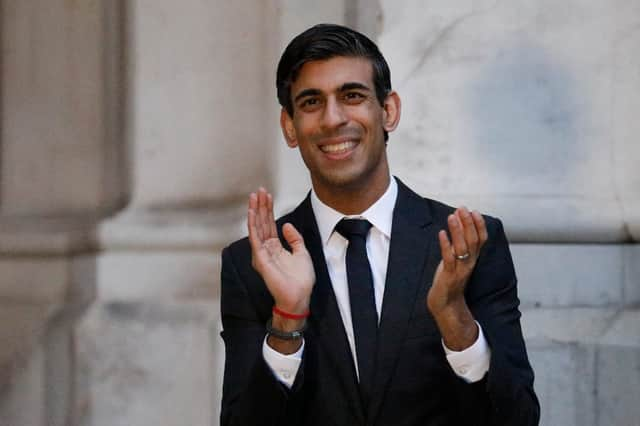VAT is being reduced to 5% on food, drink and more - here's what that means for you


Chancellor Rishi Sunak has announced that VAT will be cut from 20% to 5% for six months.
Using this week’s “mini-Budget” to announce a raft of financial changes designed to help the British economy recover from the impacts of the coronavirus crisis, Sunak unveiled that VAT was to be cut on food, accommodation and attractions.
Advertisement
Hide AdAdvertisement
Hide Ad“I've decided, for the next six months, to cut VAT on food, accommodation and attractions,” he said, delivering the Summer Statement in the Commons on 8 July.
“This is a £4 billion catalyst for the hospitality and tourism sectors, benefiting over 150,000 businesses, and consumers everywhere - all helping to protect 2.4 million jobs."
When does the change come in?
Sunak announced that the new measures will come into force from 15 July, and apply until 12 January 2021.
What does it mean for consumers?
The move is meant to encourage consumers to spend more on industries that have been particularly affected by coronavirus, by making eating out and going on holiday cheaper.
Advertisement
Hide AdAdvertisement
Hide Ad“Eat-in or hot takeaway food from restaurants, cafes and pubs; accommodation in hotels, B&Bs, campsites and caravan sites; attractions like cinemas, theme parks and zoos; all these and more will see VAT reduced,” Sunak said.
The prices of alcoholic drinks won’t be affected, but food and soft drinks could be noticeably cheaper in the coming months.
The change is expected to save the average British household £160 over a year.
Of course, businesses do not have to change their prices to reflect the VAT cut, and not doing so could actually net them more profit.
Advertisement
Hide AdAdvertisement
Hide AdIt is hoped by the government that most businesses will choose to offer lower prices to consumers.
What is VAT?
VAT (Value Added Tax) is tax paid by businesses to HMRC on the items or services they sell; its influence is usually passed on to consumers through increased prices for goods and services.
VAT is only applied to certain “non-essential” items; things like books and children's clothes and footwear are already VAT free.
What else was announced?
Though sweeping changes to tax and spending measures were not expected to be made during the 8 July announcement, the Chancellor did unveil a £3 billion investment to help create thousands of green jobs modernising public buildings and housing to make them more energy efficient.
Advertisement
Hide AdAdvertisement
Hide AdHundreds of thousands of households will get grants of up to £5,000 to make their homes more environmentally friendly, with vouchers of up to £10,000 available to some of the poorest families.
House buyers will be exempt from paying stamp duty for six months, as the Government attempts to restart the housing market, and traineeships will become more common in the wake of massive coronavirus-triggered redundancies; businesses offering new traineeships in England will receive a £1,000 bonus per trainee.